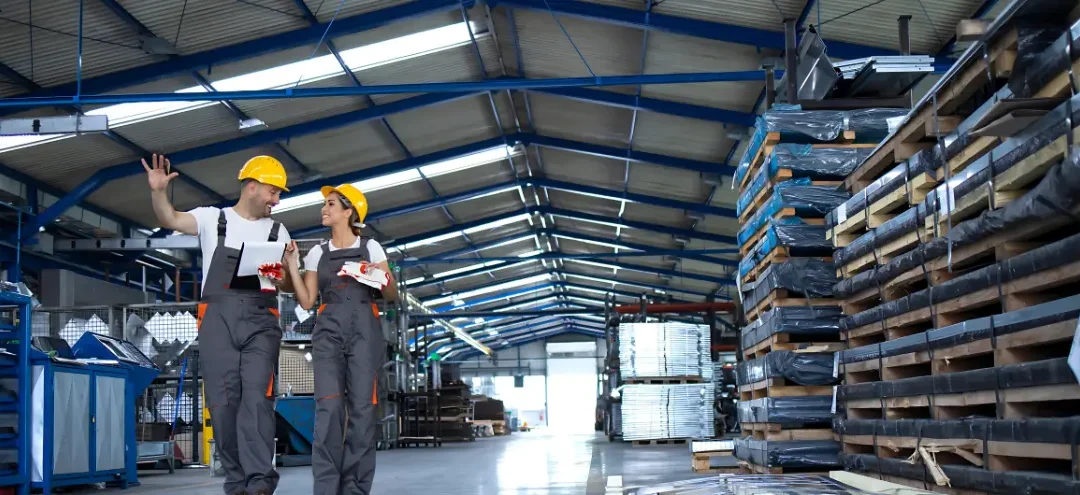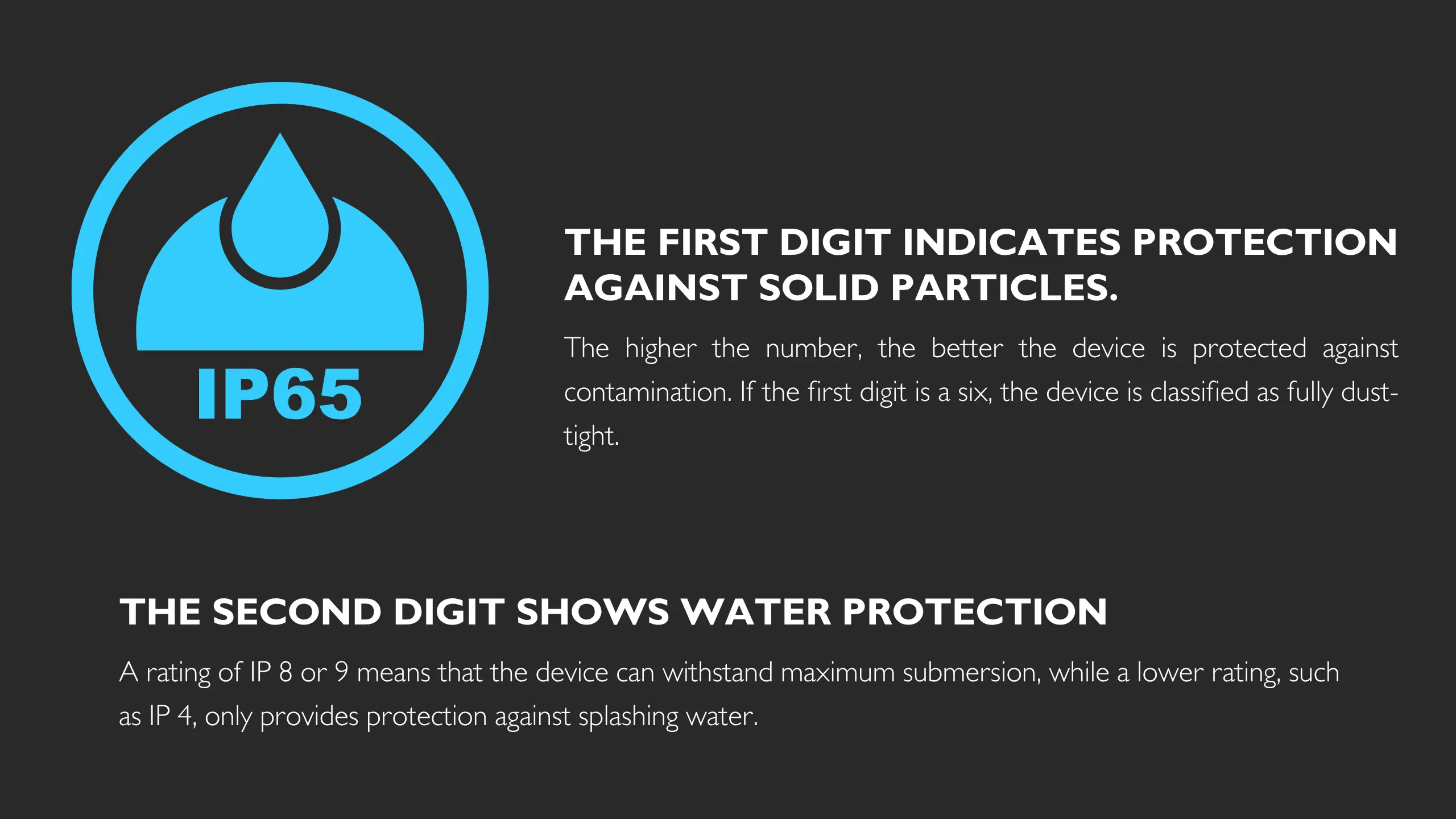Do you really need an IP65 rated lamp? Or have you just been bought by marketing and paid for an expensive extra feature you’ll never actually use?
We’ll let you in on the secret, here’s how to fool us with your IP rating!
Many buyers and purchasers still believe that „the higher the IP, the better the lamp”. But the IP rating is not a quality indicator, it is a designation of dust and water resistance, and it is used to express the protection of the enclosure protecting the circuits of technical equipment against environmental influences.
✅ An IP65 rated lamp is useful for an outdoor installation site or an open point of delivery exposed to precipitation.
❌ But in an enclosed warehouse, machine shop or covered logistics corridor where not even a spider can collect dust? There, it’s rather an unnecessary expense that will only overpay for security.
In any case, the result is a higher price, more expensive maintenance, and a bunch of extra features that no one takes advantage of.
A reliable LED luminaire with an IP40 or IP44 rating is more than enough for these tasks. No need to overdesign your lighting – just make the right choice.
The IP rating (International Protection) stands for International Protection Designation and is really used to denote the protection of the enclosure protecting the circuits of technical equipment against environmental influences.
In all cases, the signal consists of two digits.
The first digit indicates protection against solid materials such as dust, dirt or other contaminants. The higher the number, the more protected the equipment is against dirt. If the first digit is a six, the rating indicates that the equipment is fully protected against dust.
The second digit indicates protection against water. A rating of IP 8 or 9 means that the device can withstand maximum immersion in water, while a lower rating, such as IP 4, provides protection only against splashing water.
Why is the right IP rating important?
IP rating is not an empty marketing term, but a real technical characteristic that reflects the performance and reliability of a given device, such as a luminaire, under different environmental conditions. So the two numbers of the IP rating can really help you decide what type of protection you need.
The dangers of over-complicated shopping
We have seen many cases where our customers have been persuaded to buy different, more expensive luminaires in previous purchases by the high IP rating. Unfortunately, many people tend to prefer high IP rated devices, when IP rating does not always equate to higher performance or better usability – in fact, often the opposite is true.
„They can take it all!” – said the salesman, and then pushed technical luminaires on his naïve customer that he didn’t really need in terms of IP protection. In a basically dust-free and dry indoor environment, there is no justification for a maximum protection rating of IP 69. The luminaires are not only not threatened by water ingress, but not even by humidity. So our customer paid for a capability that he will never use.
Furthermore, devices with over-protection are not only more expensive, they are often more difficult to maintain. Over-complicated technical solutions are often not justified and represent a completely unnecessary cost in terms of purchase, maintenance and operation.
How to choose the right IP rated product?
Before buying any product, it is important to be aware of the environment in which you will be using it. If you are looking for an office luminaire, for example, an IP 20 or IP 40 rating will be more than sufficient, as you don’t have to worry about dust or water in such places.
However, if you’re looking for outdoor lighting or lighting for a bathroom, for example, you’ll have to be prepared for rain or high humidity. In this case, you should look for a rating of IP 44 or higher. Even the highest rating (IP 68 or IP 69) lighting devices may be unnecessary in an environment where they are not exposed to water and chemicals.
Ask before you buy!
The most important piece of advice that everyone should take is to always ask an expert before you buy to make sure you really need high IP protection. Don’t let marketing gimmicks or over-emphasised specifications influence your decision. Always choose lighting technology that meets your real needs!

